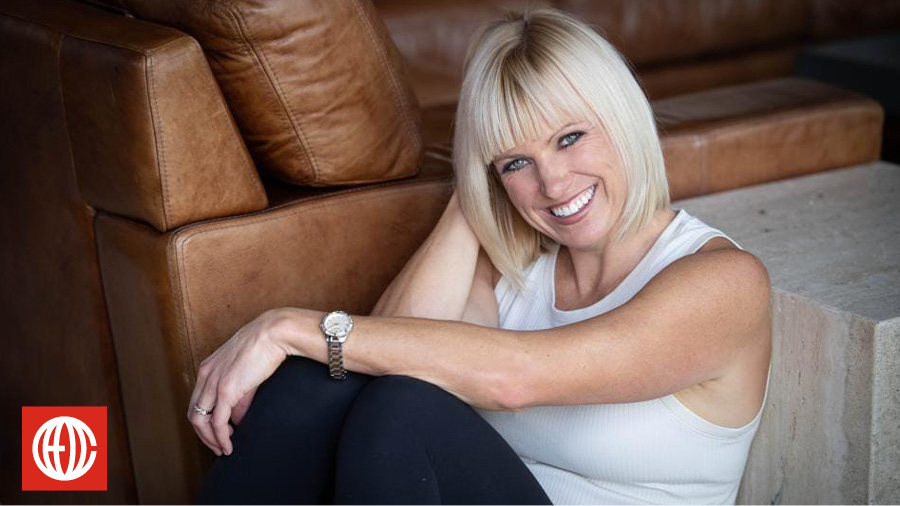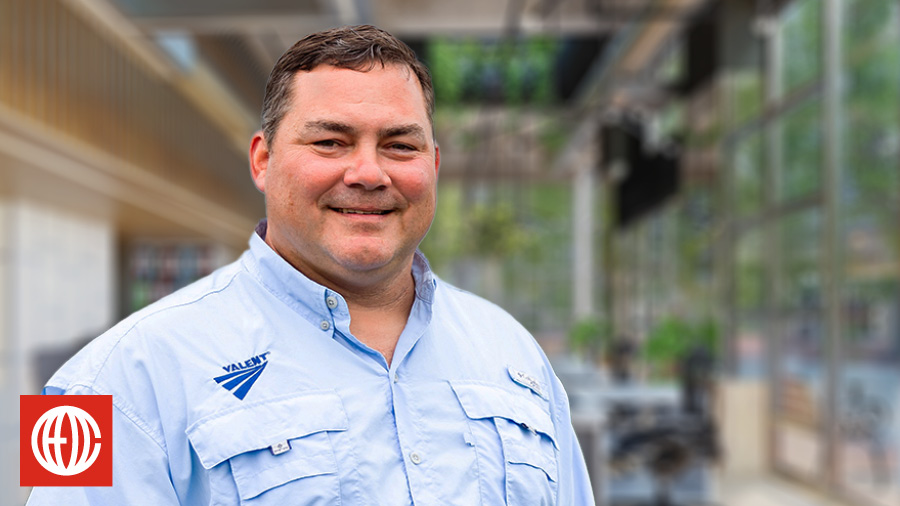Guest: Kerry Siggins, CEO of StoneAge, one of the world’s leading manufacturers of automated waterblast equipment and tooling for industrial companies and contractors worldwide. Kerry is also a keynote speaker, a member of YPO, a writer, a podcast host, and a client of CEO Coaching International.
Episode in a Tweet: A successful CEO shares her inspiring story of overcoming addiction and making a BIG turnaround.

Quick Background: All CEOs have to grow into their roles. But for Kerry Siggins, becoming a leader has been a lifelong process of learning how to maximize her strengths while overcoming weaknesses that nearly killed her.
On today’s show, Kerry discusses how she conquered her struggles with substance abuse and started to make BIG happen in her life and work.
Keys to Growing Through Adversity from Kerry Siggins
1. Get help when you need it.
Kerry says that she was a “boundary pusher” from a young age. On the one hand, Kerry harnessed that quality when she was in high school to defy expectations and earn a full softball scholarship to the prestigious Colorado School of Mines. But after college, Kerry’s adventurous side led her into some bad relationships and a serious drug problem. Moving to Austin only made matters worse.
“Labor Day weekend of 2006, Austin was in full party mode and I was on day three of no sleep,” Kerry remembers. “I took a sleeping pill and I knew I was going to get sick and I stood up and I just hit the floor. For about four or five hours, I was in and out, and I willed myself to get through what I was experiencing, which was an overdose. I crawled into my bedroom, got into bed and I slept for 24 hours. And for two days after that, I had to call in sick for work. And when I couldn’t go to work, that was it. I’m laying in bed with vomit in my hair and pizza on my pillowcase. It was this rock bottom of, okay, I almost died alone and I can’t go to work. That was when I decided to call my mom and tell her everything and tell her I needed to come home.”
Kerry wasn’t a CEO at this point. But the nature of the job can attract people who push themselves past their limits and try to prop themselves up with substance abuse, gambling, abusive behavior, or unprofessional workplace culture. Some of these CEOs don’t wake up to their blindspots until they’re out of a job, or worse. Kerry’s story is a reminder that sometimes a leader’s most valuable trait is humility.
“It was exactly one thousand miles from my apartment in Austin to my mom’s house in Colorado,” Kerry says. “And that entire thousand miles I was in and out of crying, questioning what am I going to do? How do I survive here? I’m in debt. I don’t have a job. But I just knew in my heart that I was supposed to be here. I needed my mom. I needed my roots. And so that’s what kept me driving towards Colorado.”
2. Seize opportunity.
As Kerry prepared to start over in Colorado, she leveraged the network she had built in Austin as a successful salesperson and started applying for jobs.
“I had no choice,” she says. “I had to get a job. I had no money and I actually applied for a general manager position for this little manufacturing company, StoneAge. And I thought, even though I’m grossly underqualified, I’m still going to apply for it. And if I don’t get the job, maybe I can just get my foot in the door for another open position. And the two founders and the management team saw something in me that they thought would be better for the company. They saw my drive, passion, energy, intensity, and intelligence. So they decided to take a risk and hire me. A hundred percent I know that it saved my life.”
Kerry also believes that she was up against candidates who pitched themselves as change agents, whereas she was ready to learn everything she could about management and embody the strong culture the owners had established. Less than three years later, Kerry was promoted to CEO, and she never stopped jumping at opportunities to grow.
“I don’t think that there’s any way to learn how to be a CEO except to just be a CEO,” Kerry says. “Although you can certainly surround yourself with people who have been there and done that. And that’s one of the things that I did. I completely revamped my board of directors and it proved to be one of the best decisions that I made. I’ve probably been a little too overconfident at times, but they help hold me accountable. I decided to use them as a competitive advantage. And that really helped because I had former CEOs on my board and instead of being afraid of their advice and their feedback, I really embraced it. I would not be the CEO I am today without their help and their advice and their belief in me and their support of me.”
3. Be decisive.
StoneAge provided Kerry with two vital resources for CEO growth: a supportive board and a strong company culture. But no matter how many great people you work with, tough decisions will eventually fall on your desk. Kerry faced one of the toughest early in her tenure when a popular longtime employee refused to buy into her leadership.
“Our sales manager at the time was the face of StoneAge,” she says. “Our customers loved him. He had been with the company for 20 plus years. And he was completely insubordinate and disrespectful to me. We would agree on a plan. We would talk about the issues. He would make a commitment. And then he would walk out of my office and do the exact opposite of what we had agreed upon and trash me behind my back. Finally, after a good year of trying, I decided that I was going to have to fire him. And I lost so much sleep. And then none of the bad things that I thought were going to happen happened. In fact, my sales team stepped up and blossomed. Seeing the results, it gave me a ton of confidence to just trust myself.”
4. Lead through crisis.
In 2020, StoneAge faced a major crisis … barely a month before the pandemic.
Hackers hit their servers with a ransomware attack and demanded $350,000. The company was in danger of missing millions of dollars worth of shipments. Many CEOs would have thrown up their hands and eaten the losses. But StoneAge is an employee-owned company with a strong “own it” mindset.
So the CEO called a meeting.
“I stood in front of everyone and I told them everything that I knew and I told them everything that I didn’t know,” Kerry says. “And I committed to them to keep them informed every step of the way. And I said, ‘We all are determined to not pay those hackers a penny.’ And the whole team stood up and cheered. And so that is what kept everybody motivated in those early days of figuring out how to do all of this work manually. From then on people who were not typically working together in different departments were side-by-side. It was like all hands on deck. And it was profound. It was like nothing that I’ve ever experienced or been part of.”
The following week was the BIGGEST shipping week in Stone Age’s history. And for the four weeks that the company recovered from the ransomware attack, they shipped hundreds of thousands of items while only missing four orders. Kerry describes this as “a miracle.” But really it’s just another example of Kerry’s knack for turning around negative situations and using the lessons she learns to become a better and more inspiring leader.
“Anybody can bounce back from anything,” Kerry says. “Some of it’s easier than others and it doesn’t mean that it doesn’t take a lot of work and that you won’t question yourself. But you can get through hard things. Just believe in yourself and take that action. Even if it’s a tiny little step that nobody else sees, that will set things in motion that you probably won’t expect. So don’t be afraid to dig deep and to figure out how to get through the hard stuff.”
Top Takeaways
1. Be humble. 2020 reminded all CEOs that we’re not invincible and we can’t always go it alone.
2. Always be open to new experiences and learning opportunities that will help you to grow.
3. Don’t be afraid to make tough calls whether that means asking for help or making a BIG pivot in your business.
Transcript: Download the full transcript here.
[Tweet “A successful CEO shares her inspiring story of overcoming addiction and making a BIG turnaround.”]
About CEO Coaching International
CEO Coaching International works with CEOs and their leadership teams to achieve extraordinary results quarter after quarter, year after year. Known globally for its success in coaching growth-focused entrepreneurs to meaningful exits, CEO Coaching International has coached more than 1,000 CEOs and entrepreneurs in more than 60 countries and 45 industries. The coaches at CEO Coaching International are former CEOs, presidents, or executives who have made BIG happen. The firm’s coaches have led double-digit sales and profit growth in businesses ranging in size from startups to over $10 billion, and many are founders that have led their companies through successful eight, nine, and ten-figure exits. Companies working with CEO Coaching International for two years or more have experienced an average revenue CAGR of 31% (2.6X the U.S. average) and an average EBITDA CAGR of 52.3% (more than 5X the U.S. average).
Learn more about executive coaching | Meet our world-class coaches








